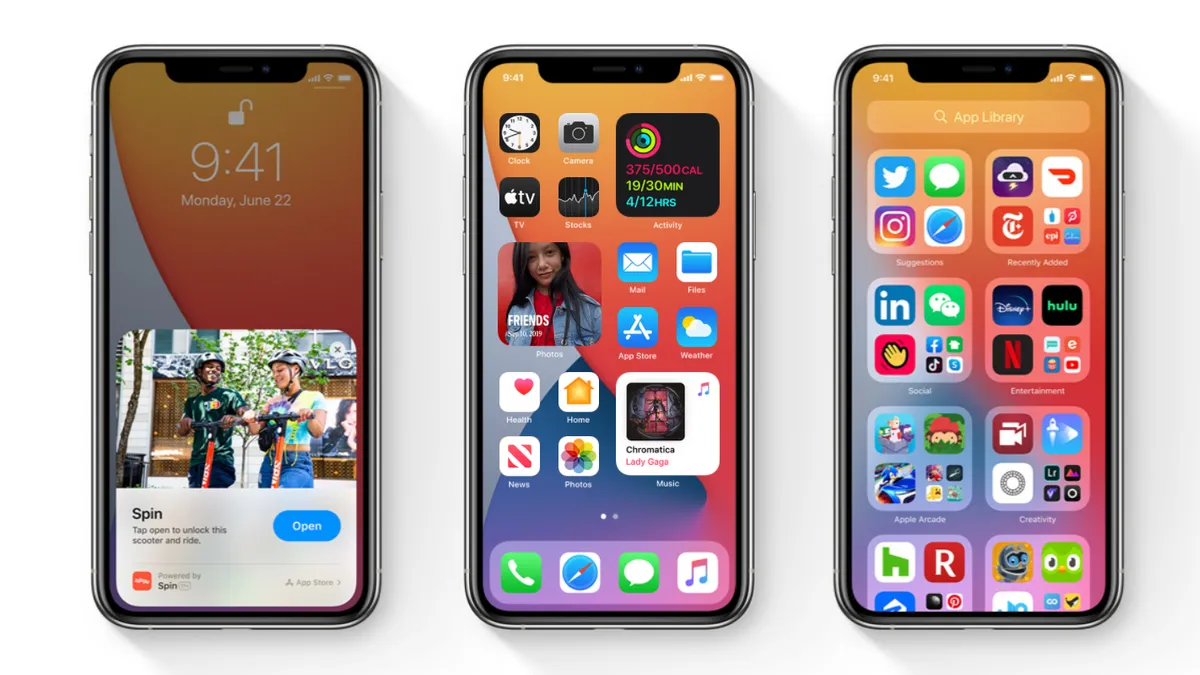Brief:
- Apple this week announced dozens of updates to the software that runs its mobile devices including the iPhone, iPad and Apple Watch. The tech giant's iOS 14, due for release in the fall, will add a feature called App Clips that lets iPhone users call up a miniature version of an app when it's needed quickly for a specific task, such as buying a coffee, paying a parking meter or renting a scooter, among the examples cited by Apple.
- Apple also will let iPhone users choose email and web browsing apps from third-party developers instead of the software that comes preinstalled. That means that iPhone users will be able to shift their default settings to use apps from rivals like Google, TechCrunch reported. A new feature called App Library will group apps by category to help people find them more quickly, eliminating the need to create separate folders.
- Apple updated the software development kit (SDK) for augmented reality (AR) experiences. ARKit4 will let AR experiences remain fixed at geographic points in select cities using location data from Apple Maps. New face-tracking features will let apps track as many as three faces using the front-facing camera, per an announcement.
Insight:
Apple previewed dozens of new software features, including several that will affect the way mobile marketers connect with customers. The App Clips feature will let all kinds of businesses create miniature versions of their apps for quick access by users. Retailers, restaurants and other service providers can create customized App Clip codes for people to scan with their iPhones, helping to speed up transactions and make them more convenient. App Clip codes can be shared in Apple's Messages chat app or downloaded on its Safari web browser. IPhone users also can activate App Clips with a near-field communications (NFC) tag or scannable QR code, giving marketers flexibility with the technology.
Most of Apple's software updates are aimed at improving the user experience (UX), such as the ability to set third-party email and browser apps as defaults. That may open the door for more developers to create those kinds of apps. Apple this week approved a subscription email app called Hey that had been rejected from the App Store, leading to a public spat with software developer Basecamp. As Apple faces growing antitrust scrutiny, the company may be required to make its App Store policies more flexible for third-party developers.
The upgrades to ARKit promise to give marketers more flexibility to create AR experiences that are anchored to specific geographic locations like a store, restaurant or tourist site. Geotargeted AR opens the eventual possibility for businesses to create digital billboards that are visible when people hold their iPhones up to a storefront, as one example. Apple CEO Tim Cook has touted AR technology for several years, predicting in 2016 that people will "have AR experiences every day, almost like eating three meals a day. It will become that much a part of you."
Retailers like Ikea, Lowe's and Wayfair have released AR-based mobile apps to enhance in-store and mobile shopping experiences.












